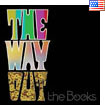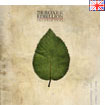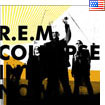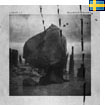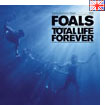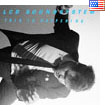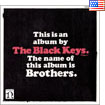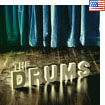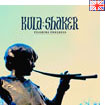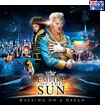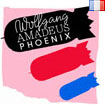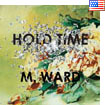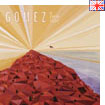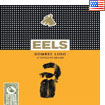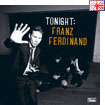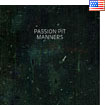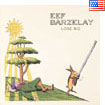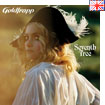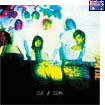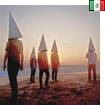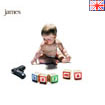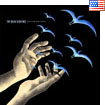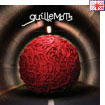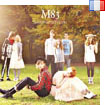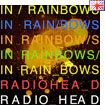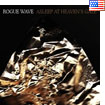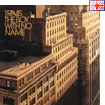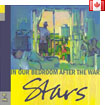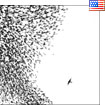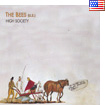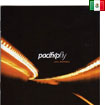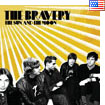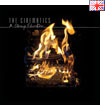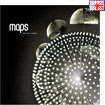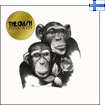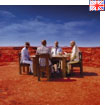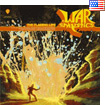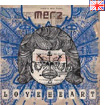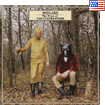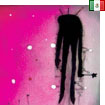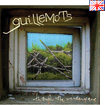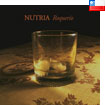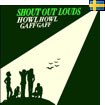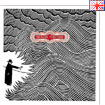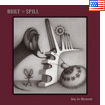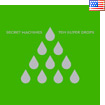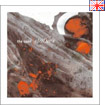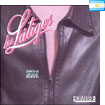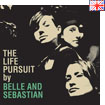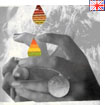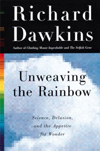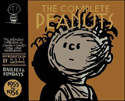Wednesday, August 30, 2006
INTERNET | MUSIC | LEGAL | GRATIS | ?
| Esta mañana en el tren a Madrid leí una nota en El País que dice que antes de que termine el año Universal Music (según el artículo, dueño del 25% de los discos que se venden en el mundo) permitirá la descarga gratuita de su catálogo completo de música, que incluye a artistas como U2, Eminem, Bob Marley, Yeah Yeah Yeahs y una infinidad más, a través de una asociación con una compañía llamada "Spiralfrog" que buscará ingresos por publicidad. (Buscar artículo en Google News.) Las piezas bajadas no estarán libres de esquemas de protección ("para evitar copias fraudulentas"), pero no costarán nada. Es interesante ver cómo seguimos dando tumbos en la búsqueda del esquema "óptimo" para la distribución de música (o películas, o lo que sea) en Internet. Yo no puedo dejar de preguntarme si, a pesar del relativo éxito de Apple con iTunes, tantos esfuerzos por controlar la distribución y las copias, son innecesarios y hasta contraproducentes. Esto, claro, viene de alguien que compró gustosamente el disco de Merz directamente de la página del artista, y está agradecido de que eran simples y sencillos mp3s. Es más reconfortante creer que le has dado diez dólares al artista que uno al artista, dos a la tienda y siete a la discográfica que condena a Internet porque les arruina su negocio, cuando lo único que arruina el negocio son los artistas que más promueven. Veamos dos ejemplos concretos relativamente recientes que a mi me han causado algo de fascinación. | This morning I read an article in El País on the train to Madrid that states that before the year is over, Universal Music (who, according to the article, owns 25% of all the albums sold in the world) will allow free downloads of its entire music catalog, that includes artists like U2, Eminem, Bob Marley, Yeah Yeah Yeahs and a whole lot more, through an association with a company called "Spiralfrog" that will attempt to make a profit through advertising. (Search article in Google News.) The files will not be free of protection schemes ("to avoid fraudulent copies"), but still, they'll be free. It's interesting to see how we still tumble along trying to find the "optimum" scheme for music (or movie or whatever) distribution over the Internet. I can't stop wondering if, despite Apple's relative success with iTunes, so many efforts to control distribution and copies are unnecessary and maybe even counterproductive. This, of course, from a guy who happily purchased Merz's last CD directly from his website, and is grateful they were plain MP3s. It's a lot more recomforting to believe you gave the artist ten bucks than one to the artist, two to the store and seven to the record company that condemns the Internet because it's ruining their business, when the only thing ruining it are the artists they promote the most. Let's see two relatively recent specific examples that I find somewhat fascinating. | |
| En enero de este año se batió en el Reino Unido el récord de ventas de un disco debut cuando salió a la venta el primer disco de los Arctic Monkeys, que vendió más que los debuts, por poner unos ejemplos, de Oasis o Franz Ferdinad. (A mi no me parecen mejor que cualquiera de ellos dos--o al menos el Oasis de aquella época--pero ese es otro asunto.) ¿Necesito explicar cómo es que eran ya tan populares antes de que saliera siquiera su primer disco? La respuesta la encontrarán en su programa de "file-sharing" más cercano. Pero, espera; ¿no se supone que el "file-sharing" reducía la venta de discos? | In January of this year the all-time record for the strongest-selling debut in the UK was broken by the Arctic Monkeys first album, which sold more than, say the debuts of Oasis or Franz Ferdinand. (I don't think they're better than either of them--or at least not the Oasis of back then--but that's another issue.) Do I need to explain how they were so popular before their first record was even out? You can find the answer inside your nearest file-sharing program. But, wait; ¿wasn't file-sharing supposed to hinder record sales? | |
| El otro ejemplo me gusta más porque tiene incluso elementos de justicia poética. Hace tres años o así un tío que se hace llamar "Danger Mouse" mezcló, por mero placer, el "álbum blanco" de los Beatles con el "álbum negro" de Jay-Z y llamó a su engendro, por supuesto, el "álbum gris"; lo distribuyó digitalmente entre sus amigos y en cuestión de semanas se habían distribuído suficientes miles de copias como para ganarse la atención de EMI, actual poseedora de los derechos de propiedad de los temas de los Beatles, quien lo demandó, generando suficiente publicidad para que muchas miles de copias adicionales de reastrearan y bajaran de la red. Como este ratón--que pareciera que las discográficas realmente consideraban peligroso--no había visto un penique por lo que había hecho, la demanda no procedió. Al año siguiente, Damon Albarn invita a Danger Mouse a producir el segundo disco de Gorillaz, y tras el éxito crítico y comercial del álbum, Danger Mouse queda establecido como no sólo como creador de un nuevo género, sino una autoridad en la industria. En el 2006 Danger Mouse y Cee-Lo Green sacan un disco bajo el nombre de Gnarls Barkley, y su primer sencillo, "Crazy", marca un nuevo hito en la historia musical: el primer sencillo que llega al #1 de las listas vendiéndose solamente on-line. Y así Danger Mouse pasó de ser el campeón de las distribuciones ilegales al rey de las ventas digitales legales. | I like the other example even more because it has these "poetic justice" elements to it. Three years ago or something like that, some guy who called himself "Danger Mouse" mashed-up, just for his own amusement, the Beatles' "White Album" and Jay-Z's "Black Album" and called his spawn, of course, "the Grey Album"; he distribued among his friends and in a few weeks it had been downloaded enough thousands of times that it drew the attention of EMI, who owned the rights to Beatles songs, who promptly sued, generating enough publicity to increase the download of the album in many more thousands. As this mouse--which seemed genuinely dangerous to record companies--hadn't seen a pence for his labor of love, the demand was dropped. A year later, Damon Albarn asked Danger Mouse to produce the second Gorillaz album, and after its critical and commercial success, Danger Mouse was established not only as the quasi-creator of a new genre but as a potential industry authority to watch. In 2006 Danger Mouse and Cee-Lo Green released an album under the moniker of Gnarls Barkley and their first single, "Crazy", made music history: the first single to reach #1 on the lists being sold exclusively on-line. And this is how Danger Mouse went from being the champion of illegal music distriution to the king of legal digital downloads. | |
| (Un poco al margen: recuerdo cuando bajé el álbum gris y pensé, "¿todo este borlote por esto? Yo podría haber hecho esto en un fin de semana...". Pero ahora no me atrvería a insinuar que podría ser tan creativo o prolífico como ha demostrado ser DM. Una reseña del disco de Gnarls Barkley vendrá después, pues no sólo me parece interesante musicalmente, sino que necesito averiguar quién ha escrito las letras, porque algunas me parecen sobresalientes...) | (A little on the side: I remember downloading the Grey Album and thinking, "All this fuss for this? I could've done this in a weekend..." But now I wouldn't dare suggest i could be as creative or prolific as DM. I'd like to review Gnarls Barkley's album at some point, because I find it not only very interesting from the musical perspective, but I need to find out who wrote the lyrics, because the few I've paid attention to seem outstanding...) | |
| Me interesaría saber qué piensan los demás acerca de la convergencia de la red y la música. ¡Deja un comentario! (Haz click donde dice "(0) Comments" abajo.) | I'd be interested in hearing what others think about the convergence of the Internet and music. Leave a comment! (Click on the "(0) Comments" link below.) |
Labels: Music
Comments:
1. Ya no dice (0) Comments... thanks to me...
2. Viva man! Por la libertad musical a toda costa (y este comentario proviene de quien no pasa copias piratas y se queda con las ganas cuando no hay $$$)
3. Como bien dices, todo cae por su propio peso... La justicia va a imperar siempre... lo interesante es conocer sus tiempos.
2. Viva man! Por la libertad musical a toda costa (y este comentario proviene de quien no pasa copias piratas y se queda con las ganas cuando no hay $$$)
3. Como bien dices, todo cae por su propio peso... La justicia va a imperar siempre... lo interesante es conocer sus tiempos.
Interesantes los ejemplos que citas, aunque el segundo no soporta muy bien el argumento.
Es decir, el primero es en pro de los file sharing systems... pero y el segundo? el segundo es solo una curiosidad del comportamiento caprichoso de la industria discografica, que en si mismo es otro tema.
Salut!
JD
Es decir, el primero es en pro de los file sharing systems... pero y el segundo? el segundo es solo una curiosidad del comportamiento caprichoso de la industria discografica, que en si mismo es otro tema.
Salut!
JD
Lo que pretendía comunicar es que el Internet y la venta de música no son cosas incompatibles, me parece que los dos ejemplos, sin ser iguales, son prueba de ello, y justo el hecho de que no son iguales, indica que aún no damos en el clavo... ¡o que hay más de un clavo!
Post a Comment





